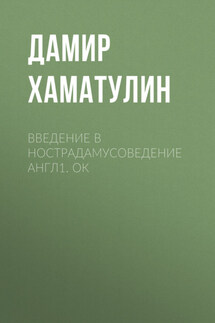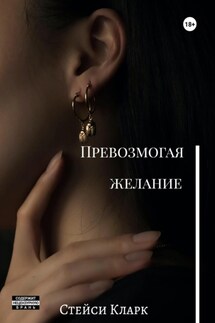Introduction to knowledge about Nostradamus - страница 42
4-80 Pres du grand fleuue grand fosse terre egeste,
En quinze pars sera l'eau diuisee: La cite' prinse, feu, sang, crys, conflict mettre Et la plus part concerne au collisee.
Near the big river there is a big ditch, the earth is dug out,
The water will be divided into fifteen parts:
The city is taken, fire, blood, screams, conflict
And most of them are involved in conflict.
Nostradamus took a shovel, and divided the streams of river water into fifteen parts. In this quatrain – the fifteenth Centurian river – " fleuue ". There is nothing to add to this, the Author speaks the truth. And then, apparently, he reports on his work already done, suggesting that, in addition to rivers, he involved the words “ cite ”, “ feu ”, “ sang ”, and, at least, “ crys ” into the collision.
I don’t want to waste a lot of paper, in the next quatrain 4-80 there is a phrase: “ sept a ` picque " – literally – "seven in (at) the peak." Exactly seven times in the first cycle of the Centuries the word " picque ( pique )" is used.
___________________________________________________________________________
Quatrain 4-84 seems to me much more interesting.
4-84 Vn grand d'Auserre mourra bien miserable,
Chasse' de ceulx qui soubz luy ont este': Serre' de chaisnes, apres d'vn rude cable, En l'an que Mars, Venus & Sol mis en este'.
The great of Auxerre will die very unhappy,
Cast out by those below him:
Tightened with chains, then with a rough rope,
In a year in which Mars, Venus and the Sun are placed in summer.
In the fourth line of this quatrain – an indication of where to search. The combination of Mars, Venus and the Sun in one quatrain is found only in quatrain 5-25. And it develops a situation similar to quatrain 6-35 with the word CLIMAT assembled from capital letters .
5-25 Le prince A rabe Mars , Sol , Venus , Lyon,
R egne d' E glise par mer succombera:
D euers la Perse bien pr es d'vn million,
Bis an ce, E gip te , ver. serp. inuadera.
Only in this case there is one nuance. The city " AVSERRE " is almost going here, the second capital " R " is missing . I think there is an explanation for this. Auxerre, now – Auxerre , earlier (well, in the 14th century – for sure) was called Ausedre . This is how he is presented in this quatrain: " AVSEDRE "
Another interesting observation. I don't know how unlikely it is to find " es + te " in this quatrain, which make up the words " este '" (see line 4-84), but they are here, as well as, of course, " an ". Of course, this is more like going somewhere away from the right direction, but on paper I will keep it. Would it come in handy?
___________________________________________________________________________
B exactly in the next quatrain, probably something similar.
4-85 Le charbon blanc du noir sera chasse',
Prisonnier faict mene' au tombereau:
More Chameau sus piedz entrelassez,
Lors le puisne' sillera l'aubereau.
Coal white black will be pursued,
The prisoner is dragged in a cart:
Moor Camel on legs bound together,
Then the younger one will sew up the eyelids of the Hobby Falcon.
Camel – " Chameau " – the word is a conductor, which is present in another quatrain 5-68.
The expression " sillera l ' aubereau ", as I found out, a special term inherent in falconry. The eyelids of a bird of prey were sewn together so that it lived in complete darkness for a certain time of its training.






